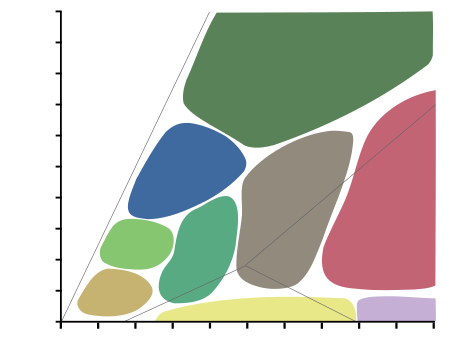Granulite
Granulites are a class of high-grade metamorphic rocks of the granulite facies that have experienced high-temperature and moderate-pressure metamorphism. They are medium to coarse–grained and mainly composed of feldspars sometimes associated with quartz and anhydrous ferromagnesian minerals, with granoblastic texture and gneissose to massive structure. They are of particular interest to geologists because many granulites represent samples of the deep continental crust. Some granulites experienced decompression from deep in the Earth to shallower crustal levels at high temperature; others cooled while remaining at depth in the Earth.
The minerals present in a granulite will vary depending on the parent rock of the granulite and the temperature and pressure conditions experienced during metamorphism. A common type of granulite found in high-grade metamorphic rocks of the continents contains pyroxene, plagioclase feldspar and accessory garnet, oxides and possibly amphiboles. Both clinopyroxene and orthopyroxene may be present, and in fact, the coexistence of clino- and orthopyroxene in a metabasite (metamorphed basalt) defines the granulite facies.
A granulite may be visually quite distinct with abundant small pink or red pyralspite garnets in a 'granular' holocrystalline matrix. Concentrations of garnets, micas, or amphiboles may form along a linear pattern resembling gneiss or migmatite banding.
...
Wikipedia

